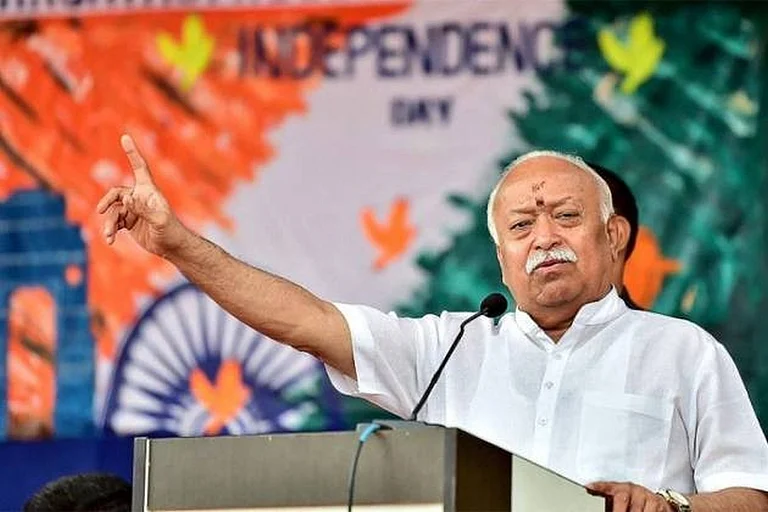PM Modi released a commemorative stamp marking 100 years of RSS.
Modi praised RSS for promoting national unity and social service across society.
RSS was founded in 1925 and continues to influence social and political life in India.
PM Modi Releases Commemorative Stamp Marking 100 Years Of RSS
Prime Minister highlights RSS’s role in nation-building and societal service during centenary celebrations.
Prime Minister Narendra Modi on Wednesday released a commemorative postal stamp to mark 100 years of the Rashtriya Swayamsevak Sangh (RSS), highlighting the organisation’s focus on nation-building and societal service.
According to PTI, Modi said the Sangh has worked across different sections of society while maintaining cohesion among its various wings on the principle of “nation first.”
The event was held at Dr Ambedkar International Centre in New Delhi.
“The commemorative stamp released today is a tribute, recalling RSS volunteers proudly marching in the 1963 Republic Day parade. Since its founding, the RSS has focused on nation-building. The RSS works in different sections of society but there are never contradictions among its various wings as they work on principle of nation first,” Modi said, reported PTI.
Modi added that the RSS emphasises the idea of ‘One India, Great India’ but noted that post-Independence attempts were made to prevent the organisation from joining the national mainstream.
“Unity in diversity has always been the soul of India. If this principle is broken, then India will weaken. Despite challenges, the RSS stands strong and is tirelessly serving the nation,” he said, PTI reported.
Founded in 1925 in Nagpur by Keshav Baliram Hedgewar, the RSS was established as a volunteer-based organisation aimed at promoting cultural awareness, discipline, service, and social responsibility among citizens.
Modi himself served as an RSS ‘pracharak’ before moving to the BJP, which draws its ideological inspiration from the Hindutva organisation, according to PTI.
(With inputs from PTI)

